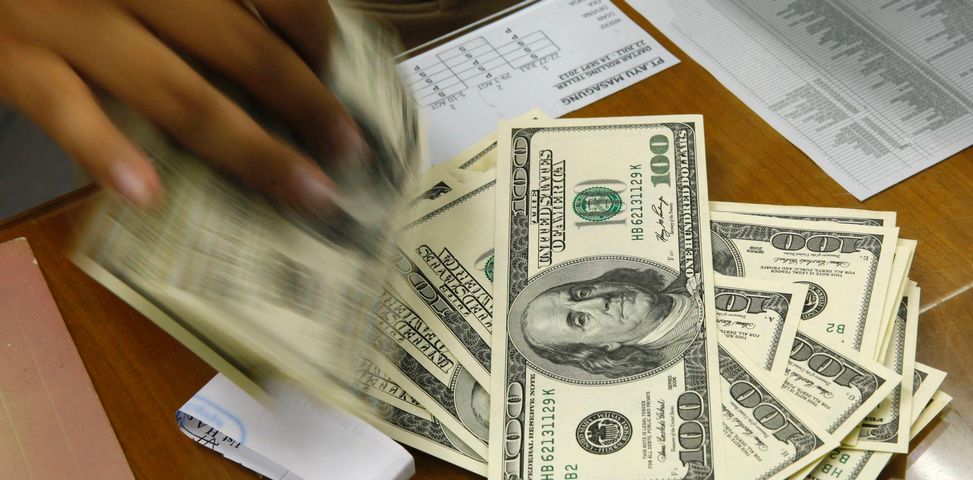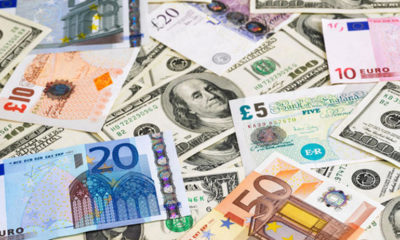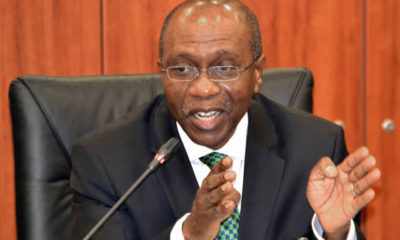Nigerians travelling abroad can access a maximum amount of $4,000 foreign exchange from the banks following the Central Bank of Nigeria’s announcement to increase forex supplies.
Sources from some of the banks said those travelling on business trips could also access a maximum amount of $5,000 for each trip.
The CBN had said in a recent statement that it had concluded plans to increase the amount of foreign exchange allocated to banks to meet legitimate needs.
This followed the warning by the CBN Governor, Mr Godwin Emefiele, to Deposit Money Banks to desist from denying customers the opportunity to purchase foreign exchange.
The purposes to access forex included Personal Travel Allowance, Basic Travel Allowance, tuition fees, and medical payments as well as Small and Medium Enterprises transactions or for the repatriation of Foreign Direct Investment proceeds, the CBN had stated.
At a virtual Bankers’ Committee meeting last week, the bankers discussed how the CBN intended to assist with forex to ensure availability for the upcoming summer period and the return of students to school in September.
The CBN also said the BDCs would continue to have their weekly allocations.
The committee observed that the rates were going up.
It stated, “The CBN has said that all the banks must make available at all times and anyone who wants to buy BTA, PTA, medical fees, student school fees and all the eligible invisible purchases to ensure that Nigerians are not forced to go and queue in the parallel market.
“So what the Central Bank is doing is to encourage all banks to make sure that there is available forex at all times, and that his information should be communicated on all our platforms.
“We are asking our customers to come to the branches and for BTA, for example, present the required documents, which are basically your international passport, your visa, your valid ticket and fill up the form in the bank.
“And what we have been instructed to do is ensure that we don’t turn anybody back and that we should request from the Central Bank once we exhaust the forex that we have.
“The idea is to have a hitch-free summer period and the resumption for children to go back to school. The idea is to ensure there is less pressure on the forex and then the rates will come down.”
Speaking during the virtual meeting, the Group Managing Director, Access Bank, Herbert Wigwe, said, “I think again as part of the central bank’s role in terms of price stability and the need to support small and medium enterprises, there was a highlight of the need for banks to go and support SMEs who import small raw materials for them to set up their businesses.”
The Managing Director, Ecobank, Patrick Akinwuntan, said, “All banks are available to ensure forex need is met.”
Managing Director, Sterling Bank, Abubakar Suleiman, said the CBN had provided sufficient foreign exchange to meet the needs of all legitimate Nigerian travellers and therefore, the idea of going to any other market should not arise at all.

 Billionaire Watch3 weeks ago
Billionaire Watch3 weeks ago
 Startups4 weeks ago
Startups4 weeks ago
 News4 weeks ago
News4 weeks ago
 News4 weeks ago
News4 weeks ago
 Bitcoin4 weeks ago
Bitcoin4 weeks ago
 Naira4 weeks ago
Naira4 weeks ago
 Forex3 weeks ago
Forex3 weeks ago
 Treasury Bills4 weeks ago
Treasury Bills4 weeks ago


















